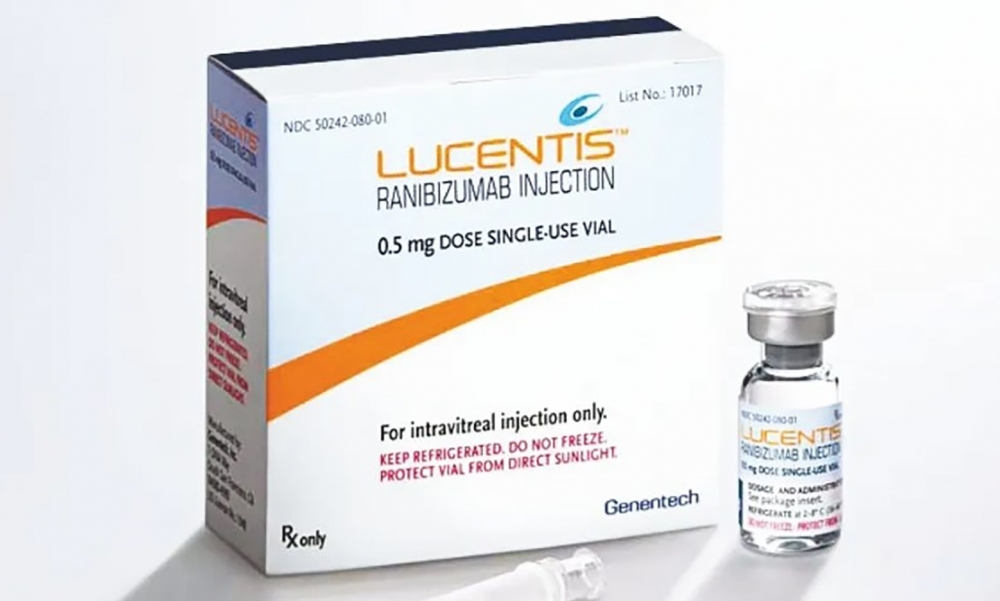Lucentis is a drug used to treat wet age-related macular degeneration (AMD). It is also used to treat diabetic eye disease and other problems of the retina. It is injected into the eye to help slow vision loss from these diseases.
Lucentis is the brand name for the drug, which is called ranibizumab. It blocks the growth of abnormal blood vessels in the back of the eye. Those blood vessels can leak and affect vision, causing vision loss from wet AMD and diabetic eye disease. Other conditions such as a retinal vein occlusion or histoplasmosis can also be treated with Lucentis.
Lucentis is one of several anti-VEGF treatments that are injected into the eye.
Avastin (bevacizumab), is another drug like Lucentis. Avastin was first approved by the Food and Drug Administration (FDA) to treat different types of cancer. Its use to treat eye disease is considered an “off-label” use. The FDA allows “off label” drug use if doctors are well informed about the product and studies prove the drug is helpful.
Research shows that both Lucentis and Avastin are equally effective in slowing vision loss.
What Are the Risks of Lucentis Treatment?
Every treatment can have side effects. It is important to understand the benefits and risks of any treatment you might have. Any eye injection, including Lucentis, may cause these problems:
- eye infection
- detached retina (where the retina lifts up from the back of the eye)
- cataracts (clouding of the eye’s normally clear lens)
Other side effects may include:
- eye redness
- being extra sensitive to light
- eye pain
- swelling inside the eye
- changes in vision, including blurriness, floaters, and seeing - double images
- dry or itchy eyes
- feeling like something is in your eye
For about 24 hours after injection, it is normal to feel like there is something in the eye, and to have mild eye pain and extra sensitivity to light. If these or any other side effects last longer, please contact your ophthalmologist right away. Eye redness or a bloody eye can last for a few days.
If you have any questions about your eyes or your vision, be sure to ask. Your ophthalmologist is committed to protecting your sight.
Information from American Academy of Ophthalmology
 02-056-3333
02-056-3333





